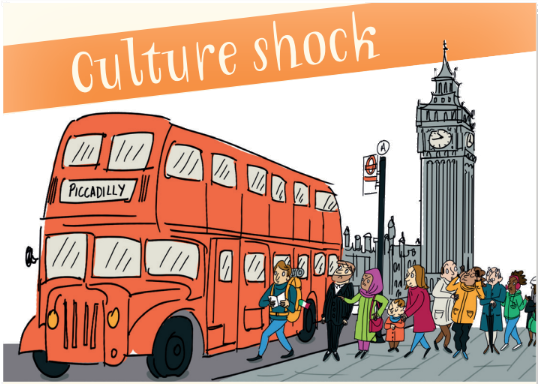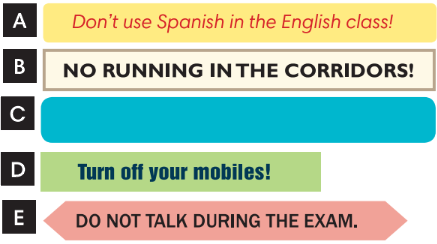Đừng bỏ lỡ những tính năng hấp dẫn của Baitap365.com
Unit 8: Talking to the world
8.2 Grammar - Unit 8. Talking to the world – Tiếng Anh 6 – English Discovery
8.3 Reading and vocabulary - Unit 8. Talking to the world – Tiếng Anh 6 – English Discovery 8.4 Grammar - Unit 8. Talking to the world – Tiếng Anh 6 – English Discovery 8.5 Listening and vocabulary - Unit 8. Talking to the world – Tiếng Anh 6 – English Discovery 8.6 Speaking - Unit 8. Talking to the world – Tiếng Anh 6 – English Discovery 8.7 English in use - Unit 8. Talking to the world – Tiếng Anh 6 – English Discovery Glossary - Unit 8. Talking to the world – Tiếng Anh 6 – English Discovery Vocabulary in action - Unit 8. Talking to the world – Tiếng Anh 6 – English Discovery Revision - Unit 8. Talking to the world – Tiếng Anh 6 – English Discovery 8.1 Vocabulary - Unit 8. Talking to the world – Tiếng Anh 6 – English Discovery Tiếng Anh 6 English Discovery Unit 8 Từ vựng Luyện tập từ vựng Unit 8 Tiếng Anh 6 English Discovery8.2 Grammar - Unit 8. Talking to the world – Tiếng Anh 6 – English Discovery
Tổng hợp bài tập và lý thuyết phần 8.2 Grammar - Unit 8. Talking to the world - SGK tiếng Anh 6 – English Discovery
Bài 1
1. Check if you understand the phrases below. Read paragraph A of the text. Which country has the most surprising rule?
(Kiểm tra xem bạn có hiểu các cụm từ dưới đây không. Đọc đoạn A của văn bản. Quốc gia nào có quy tắc đáng ngạc nhiên nhất?)
accept a present jump a queu wait in a queu

A: When you travel, you have to know about the cultural rules in the countries you visit. For example, in China you have to receive a present with two hands, but in the USA you don't have to use two hands to accept a present - one is fine. In Spain, in the summer, you mustn't be noisy after lunch. You don't have to take a siesta, but you have to be quiet. And in Britain you have to wait in a queue for everything and you mustn't jump the queue.
B: In Japan you ¹have to/mustn't take off your shoes when you visit someone's home. But in France you 2have to / don't have to take off your shoes - you can keep them on. Austrians are very punctual, so you 3don't have to / mustn't be late for a meeting in Vienna. In Germany you 4have to / don't have to wait for the green light to walk across the street, but in Egypt you 5have to / don't have to wait - you can cross any time! And in Singapore you 6have to / mustn't chew gum in public.
Bài 2
2. Study the Grammar box. Find examples of have to, don’t have to and mustn’t in paragraph A of the text.
(Nghiên cứu hộp Ngữ pháp. Tìm các ví dụ về phải, không cần và không được trong đoạn A của văn bản.)
|
Grammar (Ngữ pháp) |
Moda verbs: have to/ don’t have to, mustn’t (Động từ khuyết thiếu: have to/ don’t have to, mustn’t) |
|
You have to be quiet. = It’s necessary. (Bạn cần yên lặng. = Điều này là cần thiết.) You don’t have to take a siesta. = It isn’t necessary. (Bạn không phải ngủ trưa. = Điều này không cần thiết.) You mustn’t be noisy. = Don’t do it! (Bạn không được ồn ào. = Đừng làm điều này!) |
|
Bài 3
3. Read paragraph B of the text and choose the correct option. Listen and check.
(Đọc đoạn B của văn bản và chọn phương án đúng. Nghe và kiểm tra.)
B: In Japan you ¹have to/mustn't take off your shoes when you visit someone's home. But in France you 2have to / don't have to take off your shoes - you can keep them on. Austrians are very punctual, so you 3don't have to / mustn't be late for a meeting in Vienna. In Germany you 4have to / don't have to wait for the green light to walk across the street, but in Egypt you 5have to / don't have to wait - you can cross any time! And in Singapore you 6have to / mustn't chew gum in public.
Bài 4
4. In pairs, complete the sentences with have to, don’t have to or mustn’t. Listen and check.
(Theo cặp, hoàn thành các câu với have to, don’t must hoặc mustn’t. Nghe và kiểm tra.)
In Britain:
1. you _________ queue at the bus stop when you're the only person there.
2. you ________say ‘please’ and ‘thank you' a lot.
3. you ________ forget to say ‘thank you" when someone opens a door for you.
In Spain:
4. You _______ say ‘please’ or ‘thank you" in a café.
5. you _______ give a friend two kisses when you meet.
6. you _______ forget to kiss everyone goodbye.
Bài 5
5. Match sentences 1-5 with notices A-E.
(Nối câu 1-5 với thông báo A-E.)
1. You have to walk here.
2. You don’t have to eat here, but you if you want.
3. You mustn’t use your phones in class.
4. You have to talk in English all time.
5. You mustnt’t say anything at this time.

Bài 6
6. Complete the sentences with have to, don’t have to or mustn’t so they are true for you. In pairs, compare your answers.
(Hoàn thành các câu với have to, don’t must hoặc mustn’t để chúng đúng với bạn. Theo cặp, hãy so sánh các câu trả lời của bạn.)
1. I ______ take a bus to school at 6:30 everyday.
2. I ______ be late for school.
3. I ______ use mobile phones in class.
4. I ______ ‘thank you’ when someone gives me a present.
5. In my family I ______ sleep a siesta when I don’t want to.
I don't have to take a bus to school at 6:30 everyday. What about you?
(Tôi không phải đi xe buýt đến trường lúc 6:30 mỗi ngày. Còn bạn thì sao?)
Mẹo tìm đáp án nhanh
Search Google: "từ khóa + baitap365" Ví dụ: "Bài 5 trang 13 SGK Vật lí 12 baitap365